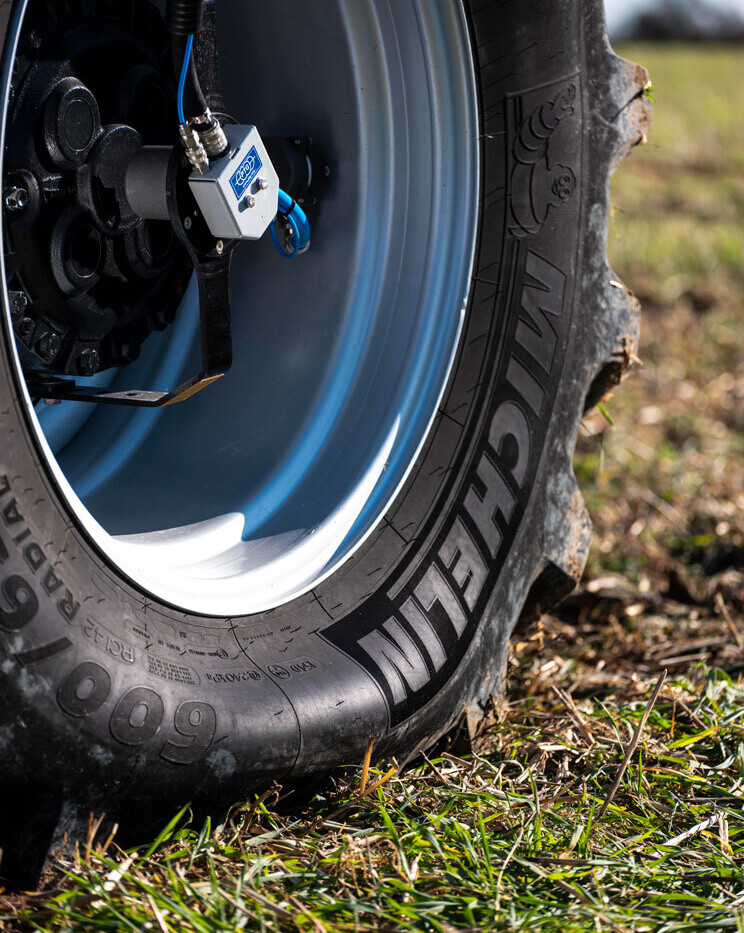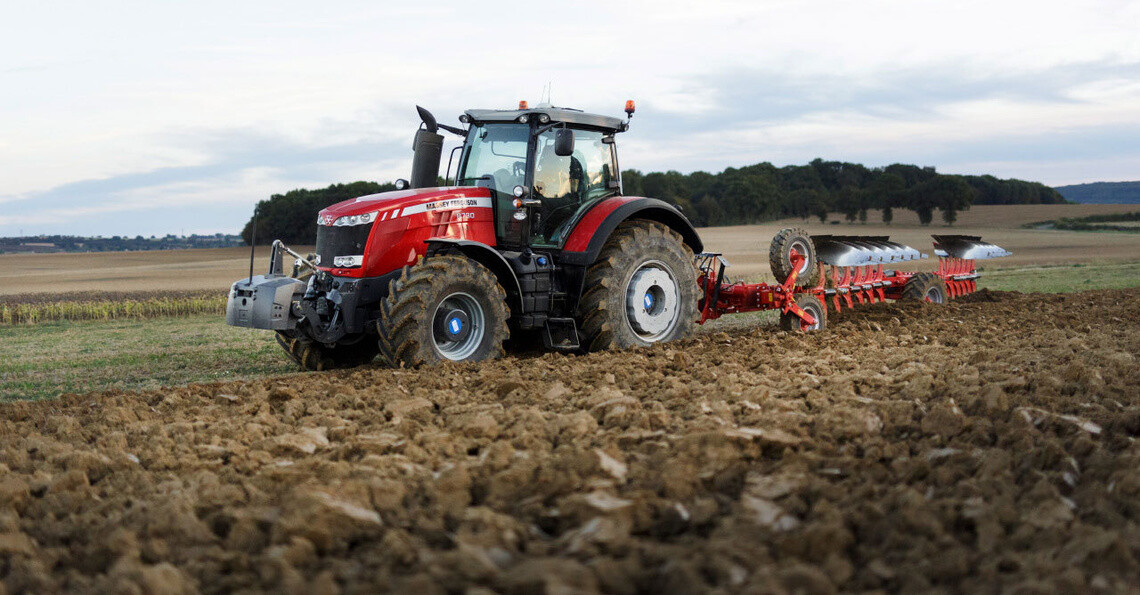
Tractor tyre pressure can be crucial to your productivity
What is the correct tractor tyre pressure?
In your business, there are certain parameters that require you to adjust your tractor tyre pressure. Neglecting this point can have negative consequences for your fuel consumption, tyre wear and performance and, by extension, your safety and productivity. Conversely, the right tractor tyre pressure for your different uses will help you get the most out of your tyres, improve your efficiency and reduce soil compaction.
So, in practical terms, how can you manage your tractor tyre pressure effectively? Read on to find out all about it.
SUMMARY:
What is the correct tyre pressure for your tractor?
The concept of "correct pressure" is a little more complicated than for a passenger car, where there are generally two possible pressures (one when the vehicle is empty and the other when it is loaded).
For a farm vehicle, there are three major parameters to take into account: load, speed and use. But don't worry, Michelin provides a calculator that takes these three parameters into account to help you determine the correct tractor tyre pressure. This tool is called MICHELIN AGROPRESSURE.
It is important to point out that the recommended tractor tyre pressure will not be the same in the field as on the road, since the speed (and potentially the load, depending on the implements used) will be different.
If you are equipped with a CTIS (Central Tyre Inflation System), it is easy to adjust it without leaving your cab when you go from the road to the field and vice versa.
Without a CTIS, we advise you to take the highest value, i.e. the most penalising configuration, to make sure you never work with under-pressure, because while over-pressure does not pose any safety problems, under-pressure on the road does.
or example, if MICHELIN Agropressure apps tells you that the best tractor tyre pressure is 0.8 bar for the field and 1.4 bar for the road, you should opt for 1.4 bar if you don't have the possibility of adjusting the pressure between the two types of surface.

Tractor tyre pressure management with ctis
What is the right tractor tyre pressure to reduce soil compaction?
As we mentioned above, without a CTIS it's best to choose the highest pressure. However, you should be aware that this can have a negative impact in the field because your footprint will be smaller than with the ideal pressure, which will increase the rate of slippage and result in disadvantages such as lower productivity, soil compaction and rutting.
If you're equipped with CTIS, then you'll always be working with the right tractor tyre pressures, because you can easily manage them from the cab.
It is also important to keep an eye on the state of the soil (which, depending on the time of year or the weather conditions, may be more or less rigid) and avoid suffocating it by driving over it with too much pressure.
In the field, the ideal is to work at low pressure so as to distribute the ground load more evenly over a longer footprint while supporting the axle load.
This reduces soil compaction and increases crop yields. Several studies* have been carried out by universities around the world, proving that, on average, agricultural yields are improved by 2% to 6% thanks to MICHELIN Ultraflex technology, which enables low-pressure work.
What other factors that can affect tractor tyre pressure?
In addition to load, speed and use, certain factors can have an impact on tractor tyre pressure.
If you twin your tyres, for example, the air volume is doubled at each axle, which means you can work with lower pressures. And if you add weights to the wheels or ballast the tyres by injecting liquid into them, you get optimum grip weight. But while ballasting doesn't add any extra load to the axle, adding weight does, in which case you need to apply higher pressures.
When to check your tyre pressure?
There are two situations in which you need to check your tyre pressure.
1 - Check your tractor tyre pressure every time you put a new implement
Pressure always depends on your load, your speed and your use.
The hardest part is determining the load, as it depends on the implements you use with your tractor.
To make things easier for you, Michelin's online tool MICHELIN Agropressure helps you determine the pressure based on various parameters, including the load generated by each of your implements.

check your tractor tyre pressure every time you put a new implement
2 - Check your tractor tyre pressure once a month for a single implement
Over time, tyres naturally lose a little pressure. If you always use the same implement, we recommend that you check your tractor tyre pressure once a month to make sure it's still adapted to your use.
Should your tyre pressure be checked when tyres are cold or hot?
When you drive for a long time or when your tyres have been exposed to the sun, they heat up and their pressure changes. This is why the best time to check the pressure of your tyres is when they are cold, i.e. when they have not been driven (or not long) and have not been exposed to the sun.
How to check your tractor tyre pressure?
To check your tractor tyre pressure, we recommend that you use a manometer, ideally an independent one, i.e. not connected to a compressor, as this can alter the measurements.
First let some air out of the valve to extract the humidity before connecting the manometer. This prevents the manometer from going out of adjustment and protects you is the tyre is ballasted with water. To let some air out, simply press down on the valve piston with a pointed object (a nail or screw, for example).
Also, remember to calibrate your manometer regularly (once a year if possible). If you can't do it yourself, take it to your dealer.
Discover the MICHELIN AGROPRESSURE tool to find out your ideal pressures
Have Questions? We're Here to Help You Grow!
Your request has been sent, we will get back to you as soon as possible
Need more advice? Discover our tyre pressure guide
*A study carried out by Harper Adams University in the UK from 2013 to 2017, demonstrates that MICHELIN ULTRAFLEX technology increases agronomic yields from 2 to 6%. These results are confirmed by similar studies carried out in the United States (Illinois) in 2015 and Brazil (Mato Grosso) from 2018 to 2021.




